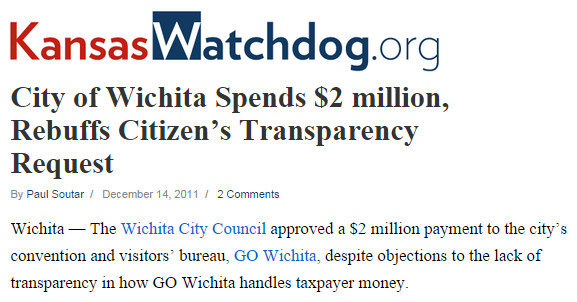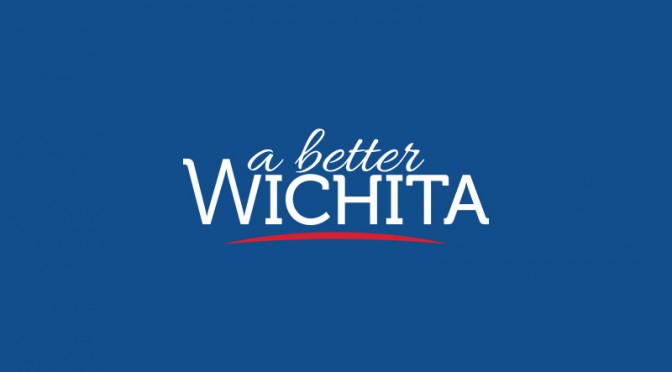Tag: Greater Wichita Economic Development Coalition
-

Claims of future transparency of Wichita tax money spending
Claims by boosters of a proposed Wichita sales tax that the city will be transparent in how money is spent must be examined in light of the city’s attitude towards citizens’ right to know.
-

What Boeing received from Wichita was better than cash
Supporters of the proposed Wichita sales tax contend that the millions in incentives Boeing received were not cash. That’s true — they were more valuable than cash.
-

WichitaLiberty.TV: Unknown stories of economic development, Uber, Fact-checking Yes Wichita
In this episode of WichitaLiberty.TV: Wichita economic development, one more untold story. The arrival of Uber is a pivotal moment for Wichita. Fact-checking Yes Wichita on paved streets.
-

To pay for a Wichita water supply, there are alternatives
Supporters of a proposed Wichita sales tax contend there is only one alternative for paying for a new water supply, and it is presented as unwise.
-

For proposed Wichita sales tax, claims of transparency
Claims of valuing and promoting government transparency by the City of Wichita are contradicted by its taxpayer-funded surrogates.
-

Fact-checking Yes Wichita: Sales tax cost per household
The cost of the proposed Wichita sales tax to households is a matter of dispute. I present my figures, and suggest that “Yes Wichita” do the same.
-

Fact-checking Yes Wichita: Boeing incentives
The claim that the “city never gave Boeing incentives” will come as news to the Wichita city officials who dished out over $600 million in subsidies and incentives to the company.
-
Fostering economic growth in Wichita
Kansas Policy Institute is hosting a conference titled “Fostering Economic Growth in Wichita,” focusing on the economic development, or jobs, portion of the proposed sales tax.
-

Fact-checking Yes Wichita: Arithmetic
A group promoting the proposed Wichita sales tax makes an arithmetic error, which gives us a chance to ask a question: Is this error an indication of Yes Wichita and the city’s attitude towards, and concern for, factual information?
-

WichitaLiberty.TV: Wichita’s blatant waste, Transforming Wichita, and how you can help
Let’s ask that Wichita trim its blatant waste of tax dollars before asking for more. We’ll look back at a program called Transforming Wichita. Then: We need to hold campaigns accountable. I’ll give you examples why, and tell how you can help.
-

Fact-checking Yes Wichita: NetApp incentives
In making the case that economic development incentives are necessary and successful in creating jobs, a Wichita campaign overlooks the really big picture.
-

What incentives can Wichita offer?
Wichita government leaders complain that Wichita can’t compete in economic development with other cities and states because the budget for incentives is too small. But when making this argument, these officials don’t include all incentives that are available.